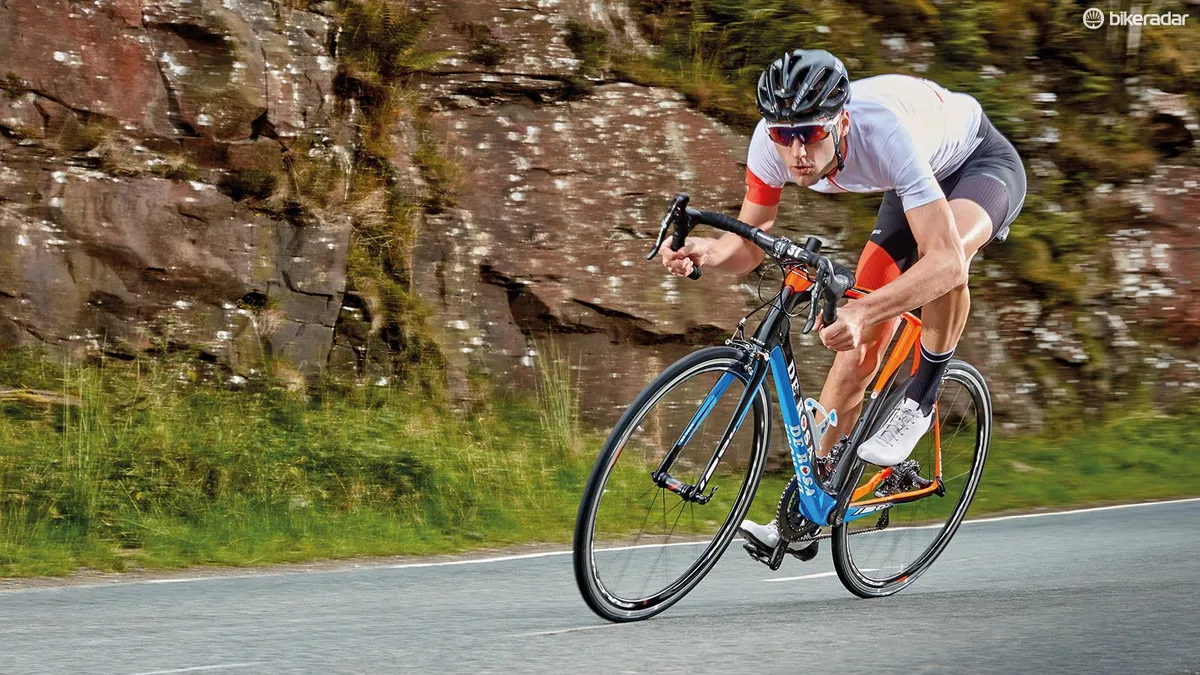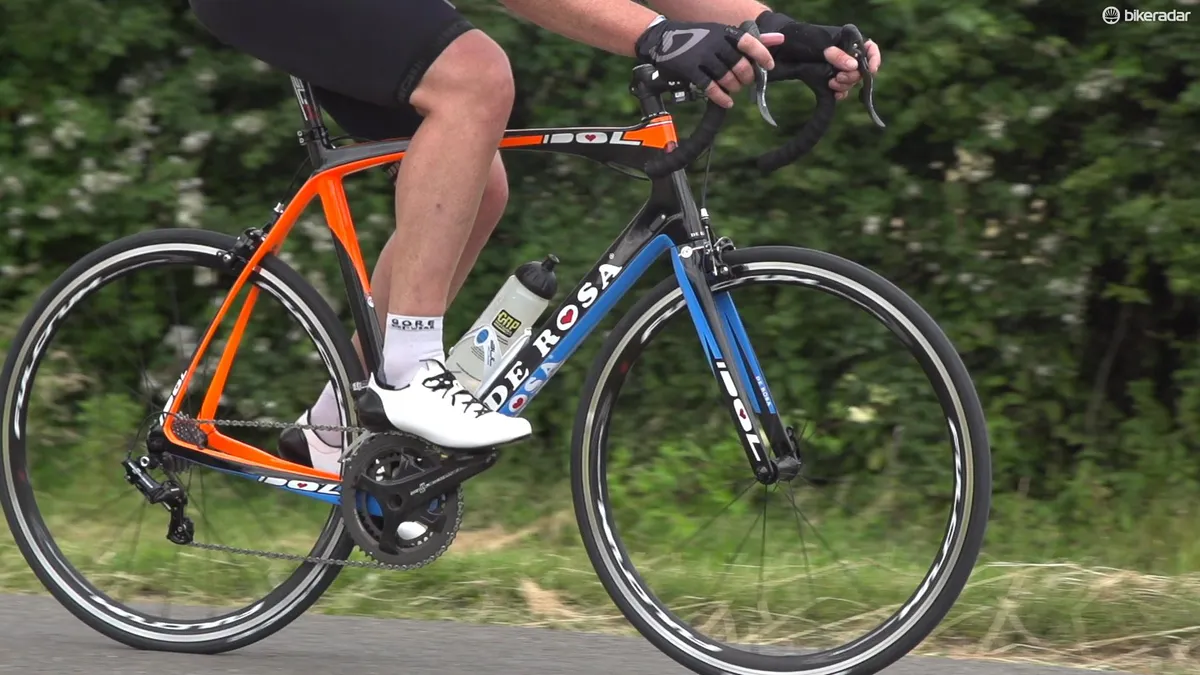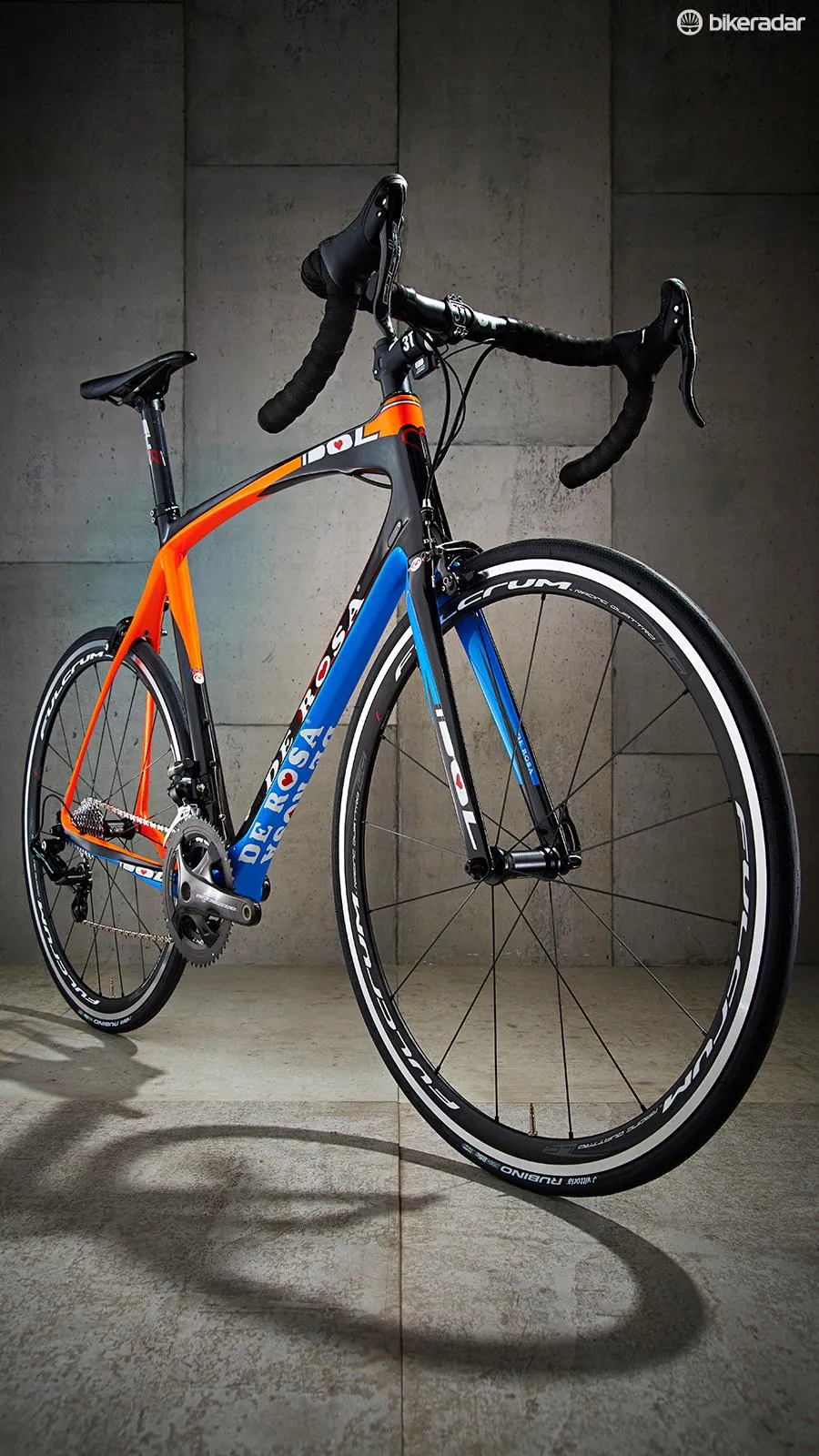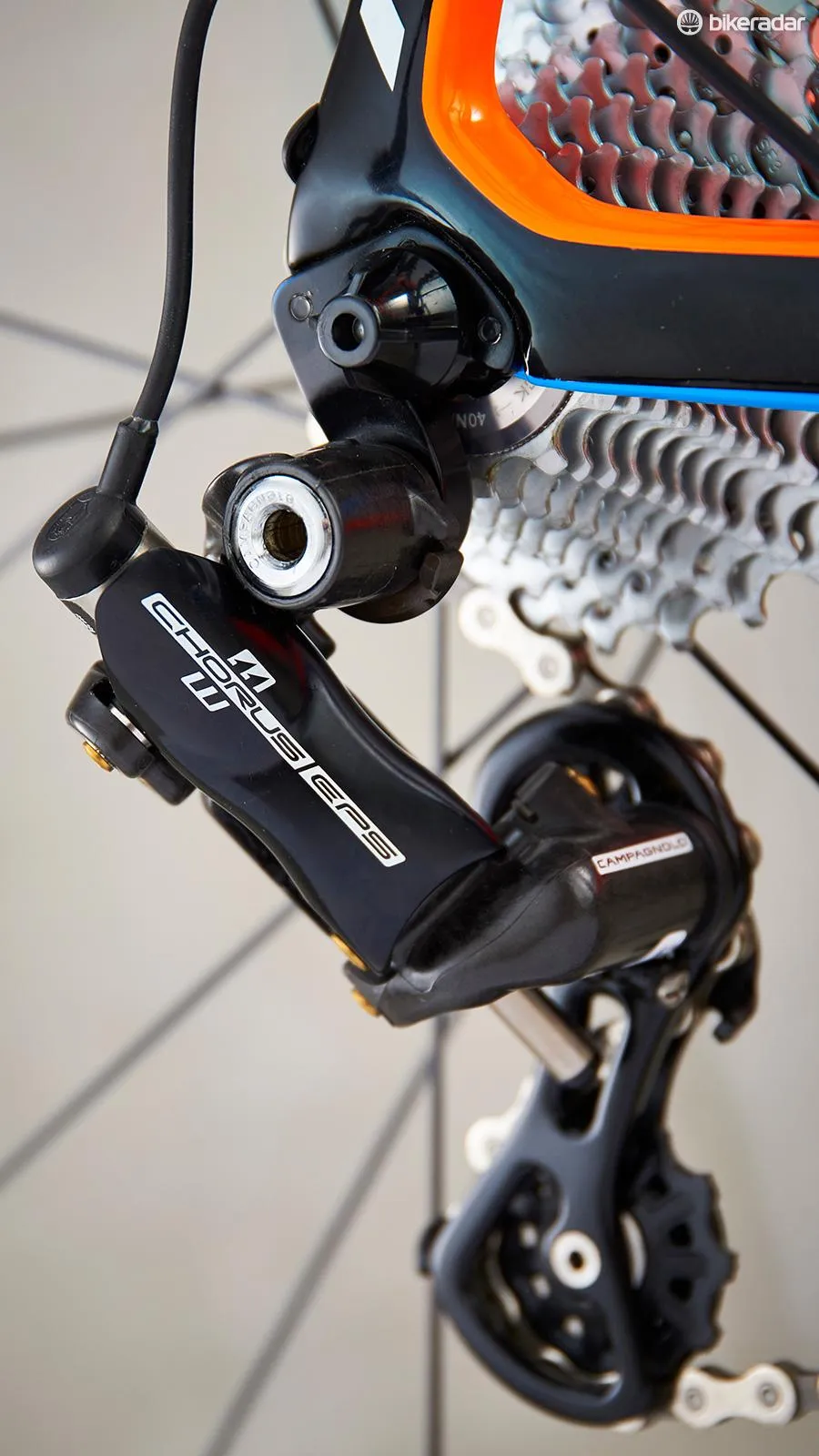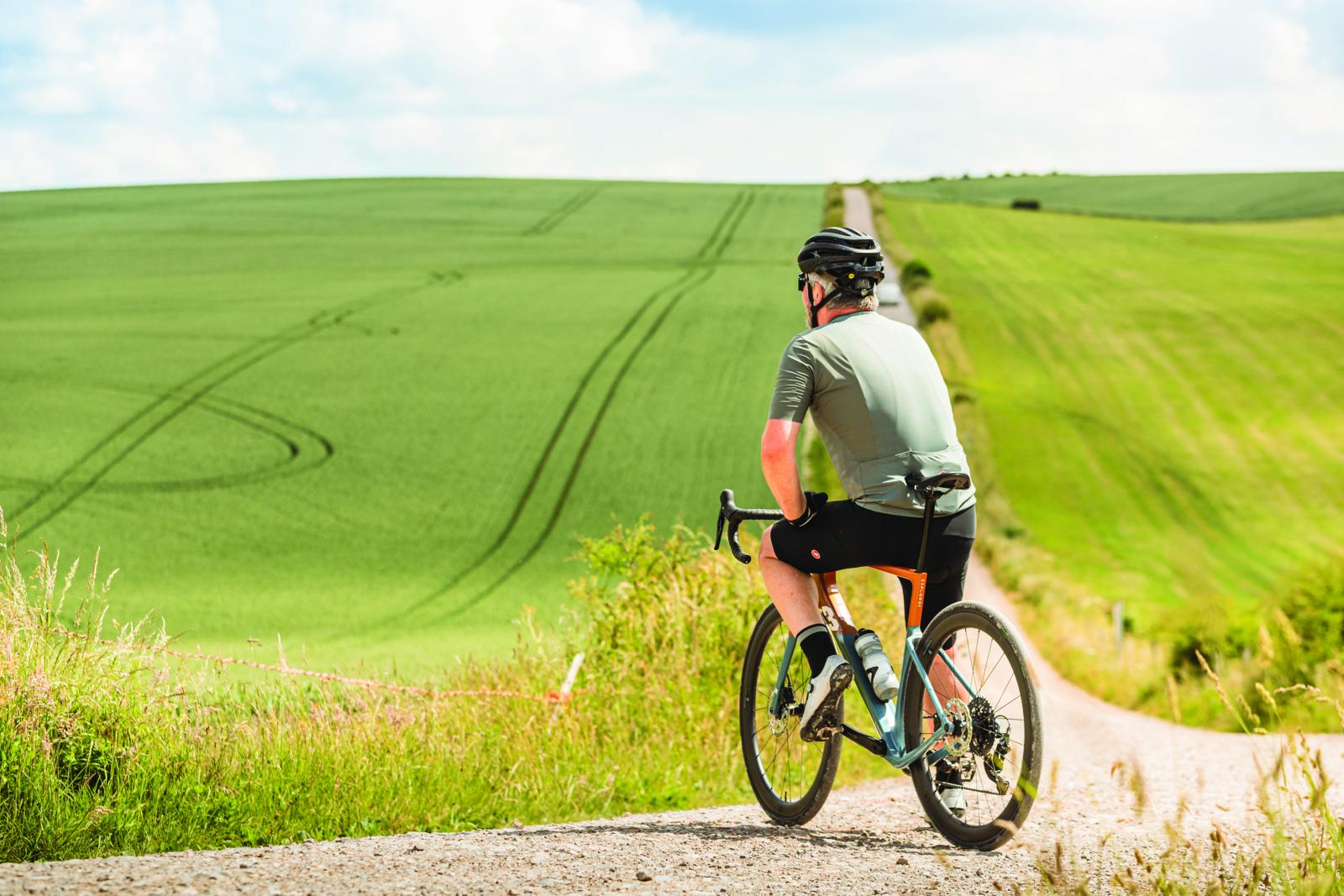There are times it seems that Shimano Di2 has become synonymous with electronic shifting – but it’s not the only player. In 2011 Campagnolo unveiled its EPS — Electronic Power Shift — though the Italian outfit had been working on electronic shifting as far back as 1992. This is a long gestation period by any standards, and one that let Shimano steal a serious march. But EPS is out there and it makes sense to test it on an all-Italian machine from another iconic marque.
The Idol has been in De Rosa’s ranks since the 1990s, when it was a stiff and agile aluminium racer. This 21st century incarnation is a different creature aimed at the gran fondo rider.
Though being Italian, of course, this isn’t going to mean a super-laid-back lazy-handling machine. They just don’t do it that way. Instead it’s based around only slightly shallow 72-degree parallel angles with a 597mm stack and 402mm reach. A sharp machine, yes, but not one that’s going to put you into a backbreaking position.
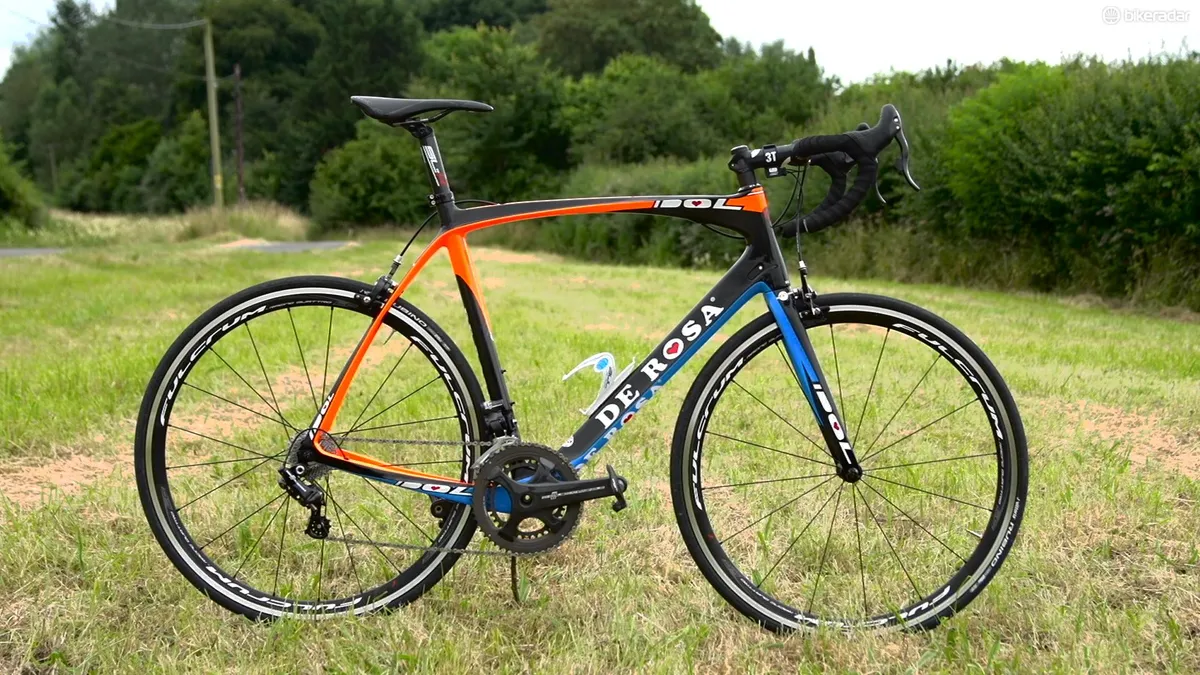
The frame itself shows plenty of Italian brio. The down-tube has a flat leading edge with a triangular rear face, the top-tube arcs gently and transforms from flat to diamond shaped to flat again before it elegantly segues into the skinny arched seatstays. The deep asymmetric chainstays contribute to a solid feel on the road, while power transfer is impressive with no evident flex. This is balanced with a subtle smoothness when the roads roughen up, the Idol going about its business ruthlessly and efficiently, but without any unwanted noise or vibrations.
Campagnolo’s Chorus EPS group is a rare beast and one not often found on complete bikes, and there is a danger that Campag — once the king of the groupset jungle — could find itself marginalised. If that were the case it would be down to a lack of exposure rather than any technical shortcomings. Spend a few days riding EPS and it’s a set up you ignore at your peril.
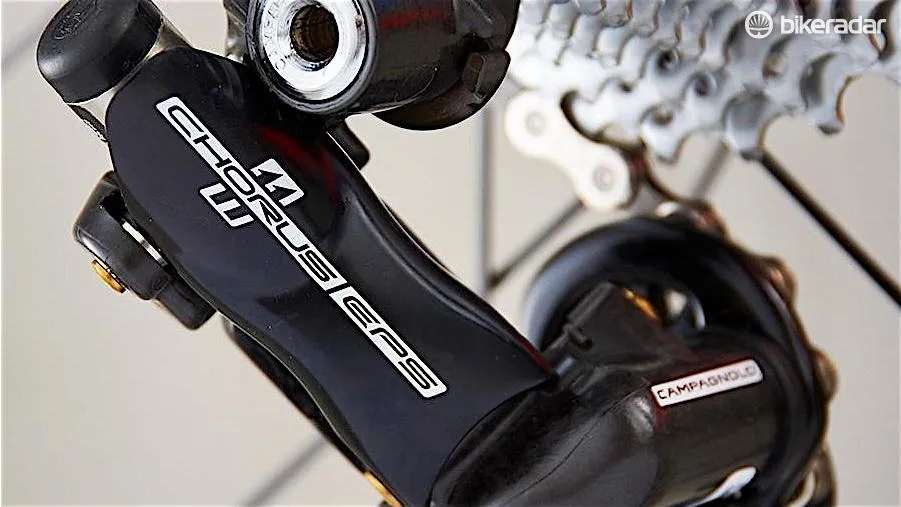
Shifting quality is superb, but the most impressive thing is the way its engineers have created something that feels like a mechanical shift. The small thumbshift button on the inside of the Ergolever has a definite click. Shifting both up and down the block is quick and accurate; it feels sharper than Di2, with more defined shifts and more definition to the levers and buttons. We came away impressed with EPS’s accuracy, consistency and rapidity.
We would have preferred slightly lower gears to the 52/36, 12-25 pairing our bike came with — more race than gran fondo — as while it’s a capable climber, steeper gradients did become a challenge. Thankfully it’s a testament to the Idol’s charms that climbing never became a chore.
We had no concerns descending, just settling into the hooks of the 3T bar and giving it full beans. It tracks beautifully, responds nimbly and rides like it’s on rails. The Quattro LG wheels may not be the lightest in the Fulcrum range, but the wider rims shape the 25mm tyres well and they do offer an aero benefit.
The new Idol is expensive, it could do with lighter wheels and for £4,300 we’d expect more bling, but it’s an impressive machine and the EPS groupset is outstanding. It’s also a bike that screams ‘ride me!’ when you see it lined up against its rivals.
De Rosa Idol Campagnolo Chorus EPS first ride
